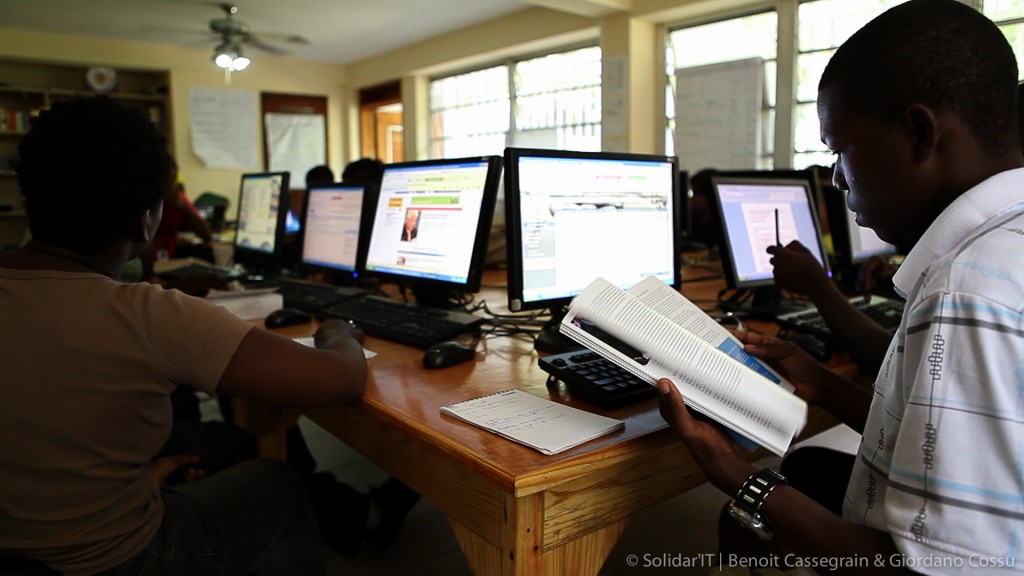Report on « Enfomasyon Nou Dwe Konnen » (ENDK)
 Ralph, Mc Haendel and the other journalists of the newsroom all agree: their work has never been so interesting, useful and necessary. They work for the radio programme « Enfomasyon Nou Dwe Konnen » (ENDK), that literally means “ Information we must know”. This programme was set up in the emergency phase by Internews on 21 January 2010, that is 9 days after the catastrophe. Internews and their team of journalists set their mission to provide specific emergency information to disaster victims: open hospitals, distribution of food, and so on.
Ralph, Mc Haendel and the other journalists of the newsroom all agree: their work has never been so interesting, useful and necessary. They work for the radio programme « Enfomasyon Nou Dwe Konnen » (ENDK), that literally means “ Information we must know”. This programme was set up in the emergency phase by Internews on 21 January 2010, that is 9 days after the catastrophe. Internews and their team of journalists set their mission to provide specific emergency information to disaster victims: open hospitals, distribution of food, and so on.
—————————————————–
Philippe Allouard, director of Internews Haïti, and Guillaume Michel, in charge of training of journalists, tell us how the programme started and then evolved:
—————————————————–
Philippe Allouard and Guillaume Michel – Internews Haiti (in French – English coming soon)
Around a dozen journalists work daily in the editing team. They all are in their early twenties, and many of them have just come out of University. The day starts at 8am with the editorial meeting, which is highly participative: the young journalists exchange views, help and even criticism with one another. Today, many months after the catastrophe, the programme has evolved and magazine-style reports take a larger share. The questions and worries of the population have changed, too: problems related to reconstruction and its issues are now the predominant subjects.
As Mc Haendel sets off for his reporting task on the ground, he only needs to mention the name of the programme: ENDK is nowadays very popular. Haitians and particularly those displaced in the camps feel themselves quite close to, and concerned by, these information. Traditionally in Haiti, journalists tended to be more focused on the political life and little on social issues. Internews has therefore opened a new path of journalism now attracting several radios and young journalists. The organization also proposes free one-week training courses, open to everybody. There is real enthusiasm there, full training rooms and more demand than it can be met. (Sebastien, journalist at RFI, will soon give his own testimony of the atmosphere in which such training takes place).
—————————————————–
ENDK’s Chief Editor, Yvens Rumbold, explains the impact of this programme on the daily life of Haitians and on journalism in general :
—————————————————–
Yvens Rumbold, Chief Editor – ENDK (in French, English coming soon)
Another reason that explains the popularity of this programme is clearly its extended reach: ENDK benefits from a network of more than 30 local radio stations. The programme is recorded on CD, and then it is distributed to all these stations. The radios then broadcast it for free, appreciating its quality and relevance.














No Responses to “News Haitians can use”